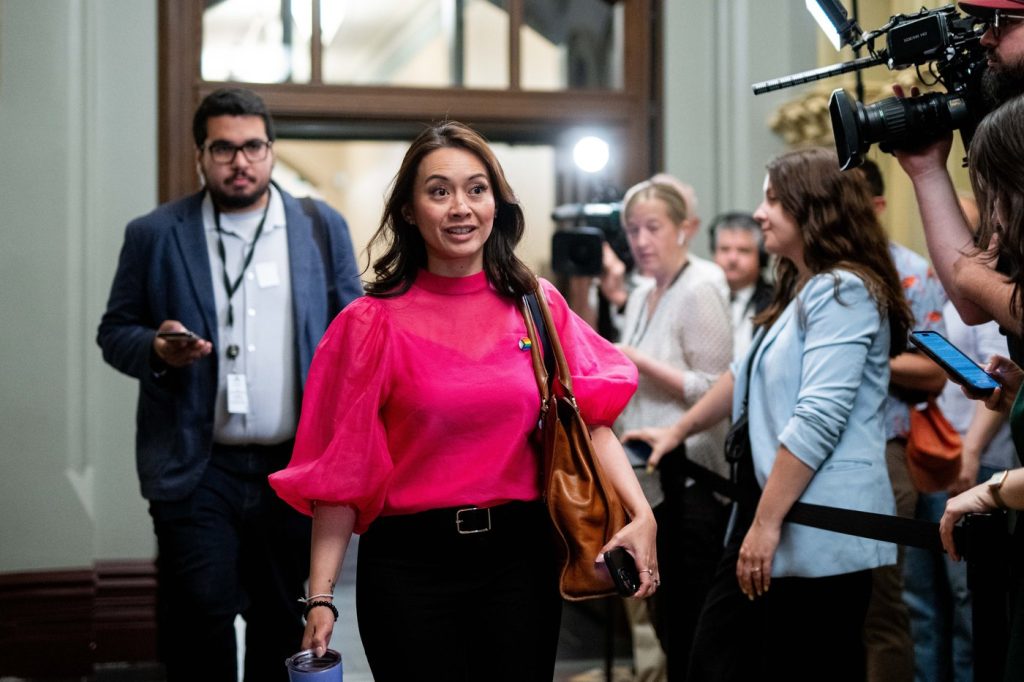Summary of LGBTQ+ and Women's Groups' Concerns Over Upcoming Budget Cuts
OTTAWA — LGBTQ+ and women's advocacy groups are expressing apprehension regarding potential funding cuts anticipated in the federal budget scheduled for November 4, 2025. The Canadian Women's Foundation president, Mitzie Hunter, conveyed to The Canadian Press that the absence of announcements on the continuation of critical funding programs could intensify challenges within communities already experiencing strain.
The federal minister responsible for gender policy has urged activists to voice their concerns, leading various organizations to initiate an advocacy campaign on Parliament Hill this month. Prime Minister Mark Carney has notably mentioned gender issues less frequently than his predecessor, Justin Trudeau, whose administration prominently featured a feminist agenda. While Carney's government maintains commitments to gender-based analytical initiatives — which assess the impacts of federal programs on women and minority groups — they have simultaneously cautioned of an upcoming austerity budget.
Concerns have escalated following the release of a departmental schedule from Women and Gender Equality Canada, indicating that funding for several key programs is nearing expiration. The forecast suggests a drastic decline in funding from $407 million in 2025-26 to $76 million in 2027-28, alongside a reduction in full-time department staff from 444 to 254. Advocacy groups have reported a lack of clear communication from the government regarding the replenishment of these vital funds.
This atmosphere of uncertainty was palpable during a reception hosted on September 16, 2025, by the Canadian Pride Caucus, a cross-partisan group of LGBTQ+ senators and MPs. Gender Equality Minister Rechie Valdez addressed the attendees, emphasizing the need for collective advocacy to ensure that Canada continues to lead in the defense of LGBTQ+ rights.
Fae Johnstone, head of the advocacy organization Queer Momentum, articulated concerns regarding a right-wing backlash targeting transgender individuals, particularly as some provinces seek to limit access to essential medical services. She expressed fear over how such sociopolitical shifts could lead to harmful solutions directed at the transgender community. Johnstone's organization is intensifying lobbying efforts to protect funding and support systems critical to the LGBTQ+ community.
Advocacy groups are particularly worried that the government may prioritize employment equality policies while neglecting essential services aimed at combating gender-based violence and ensuring safety during Pride festivals. Brice Field of Fierté Canada Pride shared alarming statistics, indicating that far-right threats are leading to the cancellation of Pride events across the country. The Manitoba Pride Alliance recently canceled the Steinbach Pride festival due to safety threats linked to extremism in a conservative area of the province.
Hunter highlighted the concerning rise in sexual assault rates, noting that socioeconomic hardships typically correlate with increased incidences of gender-based violence. She criticized the narrative that Canada has achieved gender parity, especially concerning equal pay and access to childcare, which is pivotal for women's workforce participation and economic contribution.
This ongoing crisis has left the sector on edge, with Hunter advocating for permanent funding mechanisms to support a national action plan addressing gender-based violence. The decision by Prime Minister Carney to appoint a minister for women and gender issues after initially omitting the role raised further concerns among advocates. Hunter emphasized the necessity of a robust support system for organizations across the women's movement to equip them for upcoming challenges.
During the recent Pride Caucus event, Sen. Marilou McPhedran spoke out against possible funding reductions for women's programs, emphasizing that the Liberal Party's election victory was partly due to strong female support. She pointed to an observed trend under Prime Minister Carney characterized by a lack of diversity among top government officials.
The event also witnessed greater Conservative participation compared to previous years, reflecting a changing political landscape. Yet the absence of Conservative MPs who publicly identify as LGBTQ+ from the Caucus continues to highlight existing gaps in representation. The ongoing discussions surrounding funding and support for both LGBTQ+ and women's initiatives remain critical as the November budget deadline approaches.











